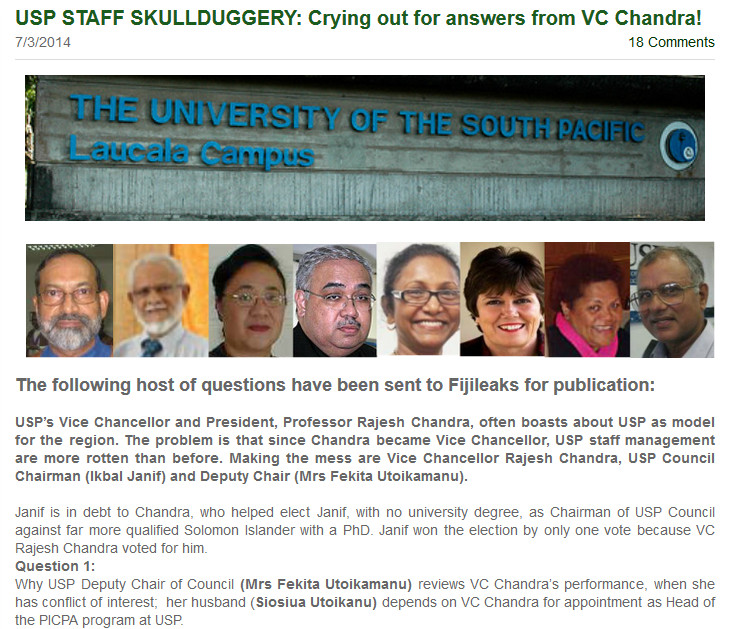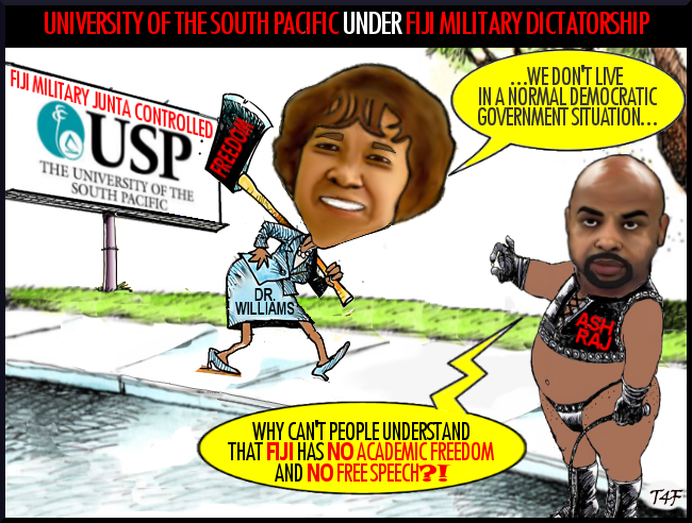 Chandra
Chandra Dear staff,
As part of the University’s goal of achieving excellence, our Strategic Plan recognizes the importance of strong internal processes and systems in the areas of governance, management and administration.
To this end, members of staff are reminded that they must use the proper University channels and processes to resolve any grievances or internal differences that may arise and that they must do this on a confidential basis. Grievances and other matters of internal administration should never be raised outside of the proper University channels and should never be shared outside of the University.
These requirements arise out of every staff member’s duty of loyalty to their employer, the University, and their duty not to act in a manner which brings the University into disrepute. They also arise out of the obligation which each of us has to our colleagues and fellow staff members to have adequate regard for their welfare and to avoid acting in ways that would unfairly harm their reputation, work or prospects.
The obligations are reflected in the Staff Ordinance, the Ordinance for the Discipline of Academic and Professional Staff and the Code of Professional Conduct for Academic Staff but they are implied duties for every staff member whether academic, comparable or otherwise.
Harmonious and cooperative working relationships are the normal expectation. In the event that there is a conflict, we must work hard to resolve the matter. The first step is to deal with the matter with the other person. Done seriously most conflicts can be resolved in this way.
If a conflict is not resolved in that way and a party feels the need to take it further, then the prescribed appeal or other conflict resolution procedure for the particular kind of grievance should be followed.
If there is no prescribed procedure, a grievance should then be raised with the staff member’s supervisor. If the grievance is not resolved by the supervisor to the staff member’s satisfaction, it may thereafter be raised in writing as appropriate with the next level of management with a copy to the other party to the grievance. Except for a complaint of misconduct against the Vice Chancellor and President (or his delegate) and thereafter, in appropriate cases, the University Visitor.
Staff members must not raise any grievance over administrative or staff matters directly with the University’s Executive Committee or Council as these are governance entities. The Executive Council and Council have made it clear in the recent past that staff members should not write to the Executive Committee or Council and that the Vice Chancellor and President is wholly responsible for the matters of management. At its meeting on 14 April 2014, the Executive Committee re-emphasized this.
The Executive Committee also expects management to strengthen policies and procedures to ensure compliance with this principle. Therefore, staff members must ever communicate directly with the members of the University’s Executive Committee or Council over any matter.
A breach of these requirements may amount to ‘misconduct’ or ‘gross misconduct’ and may give rise to disciplinary action (including possible, in serious cases, dismissal).
Staff Ordinance: http://www.policies.usp.ac.fj/index.php?docid=4841
Discipline Ordinance : http://www.policies.usp.ac.fj/index.php?docid=3361
Visitor Ordinance: http://www.policies.usp.ac.fj/index.php?docid=4832
Code of Processional Conduct : http://www.policies.usp.ac.fj/index.php?docid=4125



